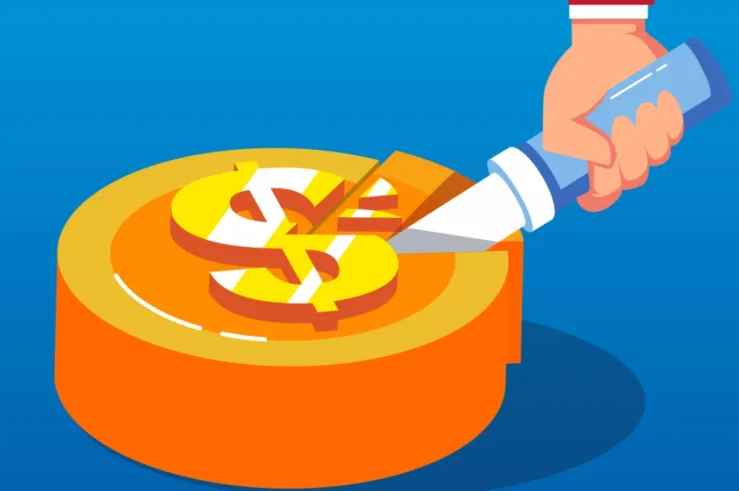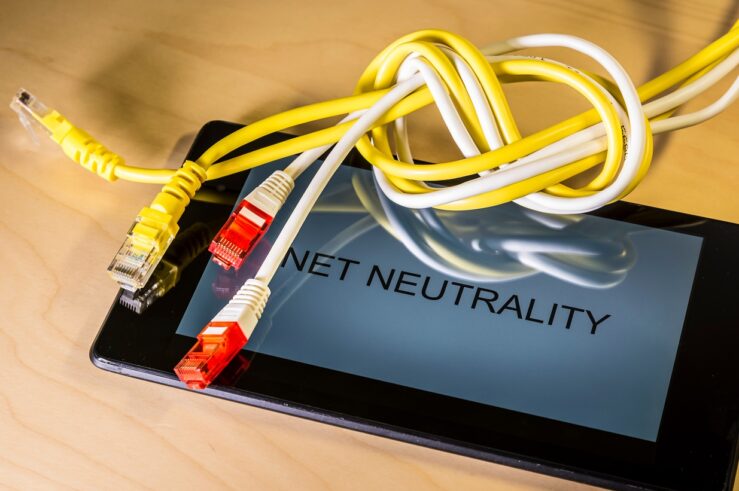Showing results for: “digital markets act”
Albanese on the Apple e-books case: Apple’s Anticlimactic Appeal
In October of last year, I had the chance to interview Hachette CEO Arnaud Nourry from the stage at the Frankfurt Book Fair, and I asked him whether his 2009 concerns that low e-book prices would devalue the book—the driving factor behind the alleged e-book price-fixing conspiracy—were in the the past. After all, much has changed ... Albanese on the Apple e-books case: Apple’s Anticlimactic Appeal
A Flag On the Play: Gigi Sohn Commits a Copyright Foul
As Commissioner Wheeler moves forward with his revised set-top box proposal, and on the eve of tomorrow’s senate FCC oversight hearing, we would do well to reflect on some insightful testimony regarding another of the Commission’s rulemakings from ten years ago: We are living in a digital gold age and consumers… are the beneficiaries. Consumers ... A Flag On the Play: Gigi Sohn Commits a Copyright Foul
There’s Nothing ‘Fair’ About EU Telecoms’ Proposed ‘Fair Share’ Plan
The European Commission’s recently concluded consultation on “the future of the electronic communications sector and its infrastructure” was a curious phenomenon in which the commission revived the seemingly dead-and-buried idea of a legally mandated “sender pays” network-traffic scheme, despite the fact that it remains as unpopular and discredited as it was when last discussed roughly ... There’s Nothing ‘Fair’ About EU Telecoms’ Proposed ‘Fair Share’ Plan
Geoffrey Manne at Cato to Discuss the Federal Circuit’s Error in ClearCorrect
Tomorrow, Geoffrey Manne, Executive Director of the International Center for Law & Economics, will be a panelist at the Cato Institute’s Policy Forum, “The ITC and Digital Trade: The ClearCorrect Decision.” He will be joined by Sapna Kumar, Associate Professor, University of Houston Law Center and Shara Aranoff, Of Counsel, Covington and Burling LLP, and ... Geoffrey Manne at Cato to Discuss the Federal Circuit’s Error in ClearCorrect
Big Tech but Bigger Ideas
As an academic working at the intersection of economics, law, and innovation, I was excited to see Nicolas Petit apply an interdisciplinary approach to investigate big tech in the digital economy. Working across law, business, and engineering has taught me the importance of bringing together different theoretical perspectives and mindsets to address complex issues. [RL1] Below ... Big Tech but Bigger Ideas
How Tech Startups Could Be a Casualty of the War on Self-Preferencing
We will learn more in the coming weeks about the fate of the proposed American Innovation and Choice Online Act (AICOA), legislation sponsored by Sens. Amy Klobuchar (D-Minn.) and Chuck Grassley (R-Iowa) that would, among other things, prohibit “self-preferencing” by large digital platforms like Google, Amazon, Facebook, Apple, and Microsoft. But while the bill has ... How Tech Startups Could Be a Casualty of the War on Self-Preferencing
Fair use’s fatal conceit
My colleague, Neil Turkewitz, begins his fine post for Fair Use Week (read: crashing Fair Use Week) by noting that Many of the organizations celebrating fair use would have you believe, because it suits their analysis, that copyright protection and the public interest are diametrically opposed. This is merely a rhetorical device, and is a ... Fair use’s fatal conceit
Ag-biotech merger symposium wrap-up
On Thursday, March 30, Friday March 31, and Monday April 3, Truth on the Market and the International Center for Law and Economics presented a blog symposium — Agricultural and Biotech Mergers: Implications for Antitrust Law and Economics in Innovative Industries — discussing three proposed agricultural/biotech industry mergers awaiting judgment by antitrust authorities around the globe. These proposed ... Ag-biotech merger symposium wrap-up
Amazon and Whole Foods, Historically Considered
Viewed from the long history of the evolution of the grocery store, the Amazon-Whole Foods merger made sense as the start of the next stage of that historical process. The combination of increased wealth that is driving the demand for upscale grocery stores, and the corresponding increase in the value of people’s time that is driving the demand for one-stop shopping and various forms of pick-up and delivery, makes clear the potential benefits of this merger. Amazon was already beginning to make a mark in the sale and delivery of the non-perishables and dry goods that upscale groceries tend to have less of. Acquiring Whole Foods gives it a way to expand that into perishables in a very sensible way. We are only beginning to see the synergies that this combination will produce. Its long-term effect on the structure of the grocery business will be significant and highly beneficial for consumers.
Net Neutrality II: Electric Boogaloo—Rate Regulation Hiding in Plain Sight
Federal Communications Commission (FCC) Chair Jessica Rosenworcel on Tuesday announced the agency’s proposal to regulate internet services under Title II of the Communications Act. Commonly referred to as “net neutrality,” the chair plans to release proposed rules today, with a vote scheduled for Oct. 19 to begin the rulemaking process. Rosenworcel’s speech identified several areas ... Net Neutrality II: Electric Boogaloo—Rate Regulation Hiding in Plain Sight
Is the Chicago School Really Dead? How Do You Know?
Answer: not by a long shot. Not in the Supreme Court. Not in the empirical economics literature. But perhaps according to at least one FTC Commissioner in the new FTC annual report: Commissioner J. Thomas Rosch believes the current financial crisis has undermined the Chicago school of economics that has so heavily influenced antitrust enforcement ... Is the Chicago School Really Dead? How Do You Know?
The DOJ-FTC IP Guidelines: Suggestions for Promoting Innovation
This week, the International Center for Law & Economics filed comments on the proposed revision to the joint U.S. Federal Trade Commission (FTC) – U.S. Department of Justice (DOJ) Antitrust-IP Licensing Guidelines. Overall, the guidelines present a commendable framework for the IP-Antitrust intersection, in particular as they broadly recognize the value of IP and licensing ... The DOJ-FTC IP Guidelines: Suggestions for Promoting Innovation








